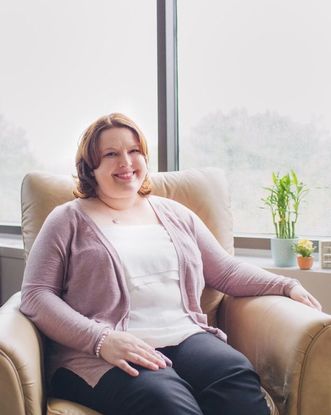|
“It seems like I’m actually experiencing my feelings, now that I’m no longer bingeing and purging my emotions,” my client in recovery from bulimia shared. Eating disorders are believed to be caused by a combination of factors including, genetic, temperamental, and environmental influences. However, one thing that almost all of my clients with eating disorders have in common is difficulty in expressing, processing, and coping with their emotions. Emotional Avoidance and Eating Disorders Emotional avoidance, is described as actions that are intended to prevent an emotional response from occurring, such as fear, anger or sadness. People struggling with eating disorders often turn to their eating disorder behaviors in an unconscious effort to try to help themselves to “feel better” and to cope with difficult emotions or life circumstances. For instance, for many people struggling with anorexia, their response when it comes to coping with feelings of anxiety, sadness, or loneliness, is to restrict their food. This may give them a false sense of “control” and specialness. For individuals with bulimia, bingeing and purging provides them a momentary feeling of comfort, “control,” or relief. For people struggling with binge eating, eating often feels like “an escape,” comforting, calming, or a way to numb out. The reality is that eating disorder behaviors often provide short-term relief or satisfaction, and long-term feelings of increased depression, loneliness, and misery. Let Yourself Feel Eating disorder treatment involves a variety of tools and strategies for helping clients to reclaim their lives. However, one important element is helping them to learn how to identify, process, and cope with their emotions in ways that align with their life values. Many of my clients struggle with being able to sit with themselves and their emotions. Often eating disorder behaviors are used as a way to try to regulate or distract from intense emotions. I often say to clients that trying to suppress our emotions, is kind of like trying to hold a beach ball under water. It takes a lot of effort and eventually the beach ball will fly up above the water with force. As a culture, we are often not taught to express our emotions. However, emotions serve important functions in our lives, as they are signals of things that we need to pay attention to. There is a quote that I love from Norah Wynne, which says "Feelings will not kill you. No one has ever died from experiencing an emotion, but people have died trying to stuff them down." It’s important to share with clients that their eating disorder behaviors are often coping strategies that they are using to try to regulate their emotions. These behaviors may have helped them to get through some difficult and traumatic times, however they are also no longer serving them. With treatment and support, people with eating disorders can learn how to heal their relationships with themselves, food, and their bodies. They can also learn how to express and process their emotions, without the constant strain of trying to suppress or run from their feelings. Part of living a meaningful life is being able to experience all of one’s emotions, both pleasant and unpleasant. One of the great privileges of doing this work is being able to see the light return into someone's eyes, for them to be exploring their true passions and interests, for their brain space to be no longer ruled with thoughts about food and their body. Full recovery and living according to your true values, is completely possible. An assignment to put this into practice:
The Eating Disorder Center is a premier outpatient eating disorder therapy center in Rockville, Maryland. We specialize in helping teens and adults struggling with anorexia, binge eating disorder, and bulimia, and body image issues. We also offer therapy for obsessive compulsive disorder. We provide eating disorder therapy in Rockville, MD, easily accessible to individuals in Potomac, North Potomac, Bethesda, Olney, Silver Spring, Germantown, and Washington D.C. We provide eating disorder recovery coaching via Zoom to people worldwide. Connect with us through our website at www.theeatingdisordercenter.com By Jennifer Rollin, MSW, LCSW-C I was excited to get the chance to interview my amazing associate, Kate Dansie, MSW, LCSW-C. From the moment that I interviewed Kate, I knew immediately that I wanted to hire her to work on my team! Kate is compassionate and warm, highly knowledgable, and is incredibly skilled in helping individuals with eating disorders and/or obsessive compulsive disorder to find freedom.  Jennifer: Tell me a little bit about yourself and what fueled your interest in helping people recover from eating disorders and OCD? Kate: From a very young age I was interested in medicine. I seriously considered a career as a nurse or doctor, but my senior year of high school I took a psychology class, and I was hooked! I went on to study psychology in college, and found my counseling classes particularly fascinating. As I entered college, my own struggle with perfectionism, obsessive worry, and an eating disorder worsened, and I sought help from my college counseling center. It was this experience that was my biggest inspiration. Jennifer: Do you subscribe to a health at every size approach? Kate: I absolutely do. I was initially introduced to Health at Every Size by another eating disorder therapist. Learning about HAES was life changing for me as I know it has been for countless others. Jennifer: How would you describe your approach to OCD treatment? Kate: When treating OCD, I use a combination of Mindfulness, Cognitive-Behavioral Therapy, Acceptance and Commitment Therapy, and Exposure & Response Prevention. I think it is essential to provide psychoeducation about the illness, particularly at the beginning of treatment. For example, it is important to note that those with OCD are often very conscientious, and I like to clarify that our goals in treatment are not to make them less so, but rather to free them from intrusive thoughts and exhausting rituals. I also like to have people pick a name for the OCD so they can begin to distinguish between their own voice and the voice of the OCD. This is typically a fun thing to do and makes for a wonderful beginning of treatment. Jennifer: What would you say are some of the biggest challenges and most rewarding aspects of your job? Kate: It can be hard at times to see how many people struggle with eating disorders and OCD; however, as soon as they come in I am also already full of hope for them. I feel truly honored to walk alongside my patients as they recover. By far the most rewarding aspect of my job is when a patient comes in and shares a victory with me, no matter how big or small. My heart just swells in those moments. Jennifer: What is one piece of advice that you would give someone who is struggling in their recovery? Kate: I’d tell them to remember that they are not alone. There are many others out there struggling, and they do not need to feel ashamed of what they’re going through. I’d also remind them that recovery is not a linear process. It can be easy to feel like the obstacles that you experience along the way are blocking the path to recovery, but they are the path to recovery. Jennifer: What would you say are some common misconceptions when it comes to eating disorders? Kate: There are so many. One of the biggest myths is that eating disorder only impact young, white females from a high socioeconomic status. This is not true at all. Eating disorders, just like any mental illness, do not discriminate and can impact individuals of any race, socioeconomic status, sex, and age. Another common myth is that eating disorders are about “vanity.” They are not. Eating disorders are diseases. Jennifer: How would you describe your approach as an eating disorder therapist? Kate: I tailor my treatment approach to each individual because everyone is unique. However, I enjoy drawing on Acceptance and Commitment Therapy, Family Systems Theory, Cognitive-Behavioral Therapy, and Dialectical-Behavior Therapy. Similar to the way I treat OCD, we begin to distinguish between the voice of the eating disorder and the healthy self. We identify rules set by the eating disorder self. Then, we design small experiments to begin breaking them and test the hypothesis that their eating disorder might be telling lies. Work with Kate: Click here to learn more and to book a free 15 minute phone consultation. The Eating Disorder Center is a premier outpatient eating disorder therapy center in Rockville, Maryland. We specialize in helping teens and adults struggling with anorexia, binge eating disorder, and bulimia, and body image issues. We also offer therapy for obsessive compulsive disorder. We provide eating disorder therapy in Rockville, MD, easily accessible to individuals in Potomac, North Potomac, Bethesda, Olney, Silver Spring, Germantown, and Washington D.C. We provide eating disorder recovery coaching via Zoom to people worldwide. Connect with us through our website at www.theeatingdisordercenter.com |
The Eating Disorder CenterWe are a premier outpatient eating disorder therapy center in Rockville, Maryland. Archives
July 2024
Categories |

 RSS Feed
RSS Feed